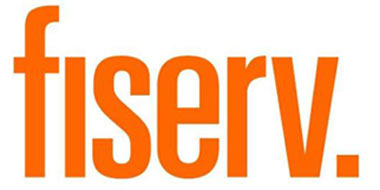MORTGAGE SERVICERS, DATA INTEGRITY IS CRITICAL
Published by Gbaf News
Posted on February 22, 2014
8 min readLast updated: January 22, 2026

Published by Gbaf News
Posted on February 22, 2014
8 min readLast updated: January 22, 2026

By Gregg Lehman
Product Manager – Enterprise Content Management, Fiserv
The financial sector has been involved in what seems like a regulatory marathon for the past few years. Compliance is high on the agenda but movement tends to be slow, with re-drafts and extensions to deadlines common. In stark comparison to this however, the recent Consumer Financial Protection Bureau’s (CFPB’s) mortgage servicing deadline has seemed more like a sprint.
The final rule amendments came into effect on 10 January 2014 and included revisions to the Real Estate Settlement Procedures Act (Regulation X) and the Truth in Lending Action (Regulation Z).
So just what do these amendments mean for Financial Institutions (FIs)? This recently passed deadline and the modified rules have affected a number of areas within the mortgage servicing sphere. Key areas of impact include:
Furthermore, the regulations also add an exemption for organisations that service 5,000 or fewer mortgage loans.

fiserv
Accordingly, loan servicers have been racing to fully understand the impact of the new regulations and make the necessary alterations to their lending processes in order to ensure compliance. Integrating such changes involves internal procedure reviews, system enhancements and an updated examination of staffing requirements. In order to comply with the amended regulations it is now more than ever particularly important that FIs are especially mindful of data integrity and information management, and the complexity and challenges of completing the end-to-end loan process across multiple, disparate systems.
Data integrity – ensuring the accuracy and consistency of stored data – is often one of the biggest challenges for those operating in the loan servicing sphere. Upon examining loan files and histories in the aftermath of the mortgage crisis, discrepancies were often found that made it nearly impossible to wholly understand the systems and decision-making processes that had been applied. In light of the new responsive regulations, it is now of even greater necessity that FIs ensure the accuracy of the loan file and maintain a comprehensive and structured loan record that includes all signed legal documents. Of note, an important benefit of automated systems here is that they can remove the inherent risks of human error sometimes found in manual entry from the equation.
As the modern lending environment becomes increasingly complex, lenders and loan servicers are looking for further processes to help them operate in a more lean and efficient way. Thus, they are increasingly looking for ways to manage compliance with new requirements that may not be supported by the traditional lending technologies in place. A complete compliance management system can capture and maintain content, compare and direct data, and track documents to lessen loan processing time, improve portfolio value and minimise lender exposure.
In order to further streamline lending processes and help facilitate audits, standardised workflows and reporting functions are of great value.
Here, automated systems can offer:
Achieving compliance with the recent amendments to Regulation X and Regulation Z may appear to be a demanding and lengthy task. However, for those FIs who take a broader view, there are other areas of potential benefit that go beyond just compliance. Providing excellent customer value and minimising organisational risk is of paramount importance for all in the financial services sector, whether a high-volume originator or loan servicer, credit union, community bank or captive auto lender. On this note, those loan servicers that accordingly shift technology to the front of their loan processes, from the outset and throughout, by capturing documents using automated tools are able to save time, lower production costs and gain in other crucial operational efficiencies.
The altered financial regulatory environment has impacted and changed a wide range of aspects in the lending process. Ultimately, what we have witnessed is a fundamental shift in the process to a more quality focussed, borrower-centric lending model that. By applying steps to simplify regulatory compliance, loan origination and servicing processes, loan servicers can minimise organisational risk and regulatory exposure whilst also being able to manage operations more effectively and maximise efficiency. Furthermore, these steps can also increase customer satisfaction and develop relationships, boost productivity and crucially, enhance profitability.
By Gregg Lehman
Product Manager – Enterprise Content Management, Fiserv
The financial sector has been involved in what seems like a regulatory marathon for the past few years. Compliance is high on the agenda but movement tends to be slow, with re-drafts and extensions to deadlines common. In stark comparison to this however, the recent Consumer Financial Protection Bureau’s (CFPB’s) mortgage servicing deadline has seemed more like a sprint.
The final rule amendments came into effect on 10 January 2014 and included revisions to the Real Estate Settlement Procedures Act (Regulation X) and the Truth in Lending Action (Regulation Z).
So just what do these amendments mean for Financial Institutions (FIs)? This recently passed deadline and the modified rules have affected a number of areas within the mortgage servicing sphere. Key areas of impact include:
Furthermore, the regulations also add an exemption for organisations that service 5,000 or fewer mortgage loans.

fiserv
Accordingly, loan servicers have been racing to fully understand the impact of the new regulations and make the necessary alterations to their lending processes in order to ensure compliance. Integrating such changes involves internal procedure reviews, system enhancements and an updated examination of staffing requirements. In order to comply with the amended regulations it is now more than ever particularly important that FIs are especially mindful of data integrity and information management, and the complexity and challenges of completing the end-to-end loan process across multiple, disparate systems.
Data integrity – ensuring the accuracy and consistency of stored data – is often one of the biggest challenges for those operating in the loan servicing sphere. Upon examining loan files and histories in the aftermath of the mortgage crisis, discrepancies were often found that made it nearly impossible to wholly understand the systems and decision-making processes that had been applied. In light of the new responsive regulations, it is now of even greater necessity that FIs ensure the accuracy of the loan file and maintain a comprehensive and structured loan record that includes all signed legal documents. Of note, an important benefit of automated systems here is that they can remove the inherent risks of human error sometimes found in manual entry from the equation.
As the modern lending environment becomes increasingly complex, lenders and loan servicers are looking for further processes to help them operate in a more lean and efficient way. Thus, they are increasingly looking for ways to manage compliance with new requirements that may not be supported by the traditional lending technologies in place. A complete compliance management system can capture and maintain content, compare and direct data, and track documents to lessen loan processing time, improve portfolio value and minimise lender exposure.
In order to further streamline lending processes and help facilitate audits, standardised workflows and reporting functions are of great value.
Here, automated systems can offer:
Achieving compliance with the recent amendments to Regulation X and Regulation Z may appear to be a demanding and lengthy task. However, for those FIs who take a broader view, there are other areas of potential benefit that go beyond just compliance. Providing excellent customer value and minimising organisational risk is of paramount importance for all in the financial services sector, whether a high-volume originator or loan servicer, credit union, community bank or captive auto lender. On this note, those loan servicers that accordingly shift technology to the front of their loan processes, from the outset and throughout, by capturing documents using automated tools are able to save time, lower production costs and gain in other crucial operational efficiencies.
The altered financial regulatory environment has impacted and changed a wide range of aspects in the lending process. Ultimately, what we have witnessed is a fundamental shift in the process to a more quality focussed, borrower-centric lending model that. By applying steps to simplify regulatory compliance, loan origination and servicing processes, loan servicers can minimise organisational risk and regulatory exposure whilst also being able to manage operations more effectively and maximise efficiency. Furthermore, these steps can also increase customer satisfaction and develop relationships, boost productivity and crucially, enhance profitability.
Explore more articles in the Finance category


